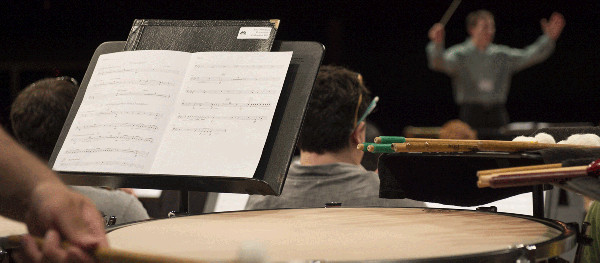(2.1) University of North Texas—History and General Information
The University of North Texas originated in 1890 when Joshua C. Chilton founded the Texas Normal College and Teacher Training Institute. A private institution, the normal college operated for the first eleven years of its life in buildings provided by the City of Denton. An 1893 act of the Texas State legislature allowing the school to certify teachers added the word “North” to its name. In 1901, the Texas State Board of Education, pursuant to an 1899 act of the state legislature, took control of the school and renamed it North Texas State Normal College. The school awarded its first bachelor’s degrees in 1919 and changed its name to North Texas State Teachers College in 1923. Two years later, the secondary-school program (a feature of normal schools in this era) was consigned to a separate Demonstration School, allowing North Texas to receive accreditation from the Association of Colleges and Secondary Schools of the Southern States. Graduate study began in 1935, and the college gradually moved toward emphasis on liberal arts study as well as education programs. In 1949 the Texas Legislature recognized the school’s growth by renaming it North Texas State College and by authorizing a separate Board of Regents. North Texas began to award doctoral degrees in education and music during the 1950s, and in 1961, as a recognition of increasing emphasis on research and graduate study, the state legislature approved yet another name, North Texas State University. The University grew very rapidly and became the largest, most comprehensive public institution of higher learning in the Dallas-Fort Worth Metroplex by the early 1970s.
After decades of investment in research, UNT was named a Tier One research university by the Carnegie Classification in 2016. Through out the 2010s, the university invested in new facilities including the first-of-its-kind Apogee Stadium, the Life Sciences Complex, Kristin Farmer Autism Center, University Union, Joe Greene Hall, Welcome Center and Support and Services Building.
During the past few decades, the organization of the University of North Texas has evolved into a complex system. This evolution has been in large measure a process of adapting to rapid growth, diversification of programs in response to demands, and changes in concepts regarding the roles of the administrative staff, the faculty, the students, the alumni and other interested groups.
The University of North Texas is accredited by the Southern Association of Colleges and Schools Commission on Colleges (SACSCOC) to award baccalaureate, master's and doctoral degrees. Contact the Commission on Colleges at 1866 Southern Lane, Decatur, Georgia 30033-4097 or call 404-679-4500 for questions about the accreditation of the University of North Texas. Note: The Commission should be contacted only if there is evidence that appears to support the institution’s significant non-compliance with a requirement or standard. Normal inquiries about UNT, such as admission requirements, financial aid, and educational programs, should be addressed directly to UNT and not the Commission’s office.
Additionally, many individual programs, including the College of Music, are accredited by professional organizations. The College of Music is an accredited member of the National Association of Schools of Music.
(2.2) Texas Higher Education Coordinating Board (THECB)
The mission of Texas Higher Education Coordinating Board (THECB) is to provide leadership and coordination for Texas higher education and to promote access, affordability, quality, success, and cost efficiency through 60x30TX, resulting in a globally competitive workforce that positions Texas as an international leader. Since being created by the Texas Legislature in 1965, the Board has worked to achieve excellence for the college education of Texas students. The Board meets four times a year, and meetings are usually also streamed live on the internet.
The Coordinating Board has broad programmatic responsibilities. Such matters as new degree programs, course additions, degree requirements, and changes in departmental name and/or structure as well as construction requests are matters for Coordinating Board action after local procedures have been met. The Board itself is composed of gubernatorial appointees; it is aided by a full-time professional staff located in Austin.
The Board is made up of 9 members appointed by the Governor for six-year terms. The Governor also appoints the chairman and vice-chairman. No Board member may be employed in education or serve on a community college board of trustees. Board Members serve on the Standing Committees. Advisory Committees provide guidance to the board on various topics. Higher education in Texas is funded according to a formula determined by the state legislature that emphasizes enrollment as the principal determinant of state funding to colleges and universities.
(2.3) The University of North Texas System—General Information
The University of North Texas System's campuses in Dallas, Denton, Fort Worth and Frisco offer more than 300 bachelor’s, master’s, and doctoral degree programs with a combined enrollment in excess of 45,000 students.
The UNT System has three components.
Appointed by the governor of Texas, the University of North Texas Board of Regents is the governing body of the University of North Texas System.
The Chancellor is the chief executive officer of the System and has direct responsibility for all aspects of the System’s operations. The Chancellor reports to and is responsible to the Board. The Chancellor heads the System Administration, which is used by the Board to exercise its powers and authorities in the governance of the System. The UNT System organizational char and governance model can be found on the UNT System website: https://www.untsystem.edu/org-chart-governance. Visit PolicyTech to view and search all UNT System Administration Policies as well as System Regulations and Regents Rules: https://untsystem.policytech.com/
- University of North Texas, founded in 1890, is the flagship university of the UNT System, a student-centered research university. It is the state’s fourth largest university and the most comprehensive university in the Dallas-Fort Worth region. UNT has more than 36,000 students enrolled in 97 bachelor’s, 101 master’s and 48 doctoral degree programs.
- UNT Health Science Center at Fort Worth was established in 1970. It focuses on the training of future osteopathic physicians, on providing an increasing number of health profession programs, and conducting a vigorous research program. UNTHSC is nationally recognized for leadership in developing primary care physicians.
- UNT Dallas began forming in 1999 to enhance access to public higher education in Dallas and Ellis counties. It is located on 264 donated acres at Camp Wisdom and Houston School roads. The school offers junior-, senior- and graduate-level courses leading to bachelor’s, master’s and doctoral degrees. The institution name changed to UNT Dallas when enrollment at the Dallas Campus equaled 1,000 full-time equivalent students. It then became the first public university in the city of Dallas.
(2.4) University Administration
The President is the chief executive officer of the University and reports to the Chancellor. Subject to the policies and rules of the Board and under the direction of the Chancellor, the President has general authority and responsibility for the administration of the Institution. The President is authorized to delegate any of the assigned duties and authorities except as restricted by the Board or the Chancellor.
The Provost and Vice President for Academic Affairs is responsible for the main mission of the institution, including teaching, research and service. The provost's office provides leadership in the development and supervision of the university's academic programs and curriculum in conjunction with the deans and faculty representatives. Additionally, the Provost's Office collaborates with the Office of Research and Innovation in promoting faculty and student scholarship.
The President's Cabinet leads the core functions of the university. For a complete listing of cabinet members, visit the Office of the President website. The site also includes a link to the organizational charts for each cabinet member: https://president.unt.edu/presidents-cabinet.
(2.5) University Faculty Committees
The University of North Texas has many standing and ad hoc committees to address the concerns of faculty members, students, and staff members. The two standing committees below exist to help faculty in fulfilling their various roles, and are key resources for resolving issues as they arise.
Chairs' Council
The Chairs’ Council exists to facilitate and improve the work of faculty department chairpersons by referring issues and informing the university administration on items that are of interest and/or relevant to chairpersons, assisting chairpersons in the performance of their duties, providing development opportunities for chairpersons, and advancing the University’s mission. The Council’s membership consists of one representative for each of the colleges plus the Mayborn School of Journalism. Each College and School determines its own mechanisms for electing or appointing chairs to the Council, and their terms of office.
Faculty Senate
The mission of the Faculty Senate is to lead faculty in fulfilling their responsibilities in the shared governance of the University and to represent faculty interests to University and community stakeholders. The Faculty Senate is responsible for exercising its vested authority in ensuring that academic freedom is encouraged and protected, and for acting as a guiding body to oversee curriculum that promotes student learning through a rigorous course of study. The Faculty Senate serves as a liaison between faculty and administration. This includes:
-
- developing and implementing the strategic plan of the University;
- informing faculty about University policies, procedures, and substantive changes made by the administration;
- making recommendations to the Provost and President regarding faculty personnel issues; and
- making recommendations to faculty and administration on policies to improve the work environment.
Vision Statement of the Faculty Senate
The Faculty Senate will be seen by University and community stakeholders as a valued partner in the fulfillment of the University’s mission. It will establish itself as an efficacious champion of academic quality, as the authority for the delivery of education services, and as the source of advice and support for University administration. The Faculty Senate will be perceived by faculty and administrators as a well-respected body that has a substantive role in University governance. The work of the Faculty Senate will be seen as highly relevant to the daily endeavors of faculty and to University decisions that affect academic affairs.






